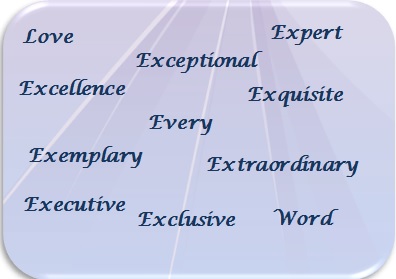
Scholarship
A review of ‘Encyclopedia of Terminology of Educational Communications and Technology’
Edited by Rita C. Richey, the ‘Encyclopedia of Terminology for Educational Communications and Technology’ is a handy reference text covering 186 terms, over six major educational areas:
- Foundations
- Instructional Design
- Technology & Media
- Analysis & Evaluation
- Management & Organizational improvement
- Research & Theory
With contributions from 72 authors, the book offers both scholars and practitioners with insightful definitions and discussions into the salient attributes of each term, any contrasting views and potential future trends. Entries are listed alphabetically and cross-referenced where applicable; supporting the anticipation that many readers will approach the book in a non-linear fashion. In addition, readers are signposted to other reference sources at the end of the book for further exploration.
So, what might come to mind when thinking about educational technology? Some may bring up the following:
- E-Learning leadership and strategy
- Learning management systems
- Mobile learning technologies
- Serious games
- Social media
- Technology enhanced learning
- Web 2.0 and Web 3.0
However, the above terms appear to be skewed towards the technological perspective – further reflection warrants the need to discuss areas like:
- Affect/emotion
- Blended learning
- Cognitive science
- Collaborative learning
- Constructivism
- Educational theory
- Evaluation
Obviously these are not comprehensive lists, but perhaps they offer one starting point in demonstrating how large the educational technology field actually is. Indeed, the phrase ‘educational technology’ is subject to debate in the literature; ranging between a process, a theory, an application, a profession, as computer technology, and finally as media and audio-visual communication. Here lists some of them:
- Commission on Definition and Terminology of the Department of Audiovisual Instruction, cited in Ullmer (1973):
- The “branch of educational theory and practice concerned primarily with the design and use of messages which control the learning processes”.
- Deeson (2012):
- The “application of educational knowledge to improve learning”.
- Richmond (2012):
- The “systematic and controlled application of science-based knowledge and techniques to the learning situation”.
- The 2008 Definition and Terminology Committee of the Association for Educational Communications and Technology (AECT), cited in Hlynka (2013):
- “Educational technology is the study and ethical practice of facilitating learning and improving performance by creating, using, and managing appropriate technological processes and resources.”
Here’s my suggested take on the phrase ‘educational technology’:
[success]Educational technology is a sophisticated science that intertwines a blend of tools and processes for effective education systems. Through active and meaningful learning, teaching and assessment, the resulting outcome to learners would be improved knowledge, understanding and onward application. [/success]
The above only offers a very small discussion in the area, and it perhaps allows us to appreciate the considerable scope of the domain and indeed, the effort involved in developing any sort of compilation.
Overall this is a highly recommended book. It can be used as a reference text as and when required; signposting to key educational technology topics, discussions and other scholarly works. Finally, the exponential advances in educational neuroscience, educational and communications technology, cognitive science and health technology, perhaps necessitates this book as a coherent reference guide for educational thinkers and leaders.
References
AECT. (2014). Association for Educational Technology and Communications Website: www.aect.org.
Deeson, E. (2012). Book review: Foundations of Educational Technology. British Journal of Educational Technology, 43(4), E138-E140.
Hlynka, D. (2013). Educational Technology. In R. C. Richey (Ed.), Encyclopedia for Terminology for Educational Communications and Technology (pp. 102-104). London: Springer.
Ullmer, E. J. (1973). The Meaning of Instructional Technology: An Operational Analysis. In L. Lipsitz (Ed.), Introduction to Educational Technology (p.34). Englewood Cliffs, New Jersey: Educational Technology Publications.
Richey, R.C. (2013). Encyclopedia of Terminology for Educational Communications and Technology. London: Springer.
Richmond, W. K. (2012). The Education Industry, p. 225. Oxon: Routledge.
© Nancy El-Farargy, 2014.
Explore More